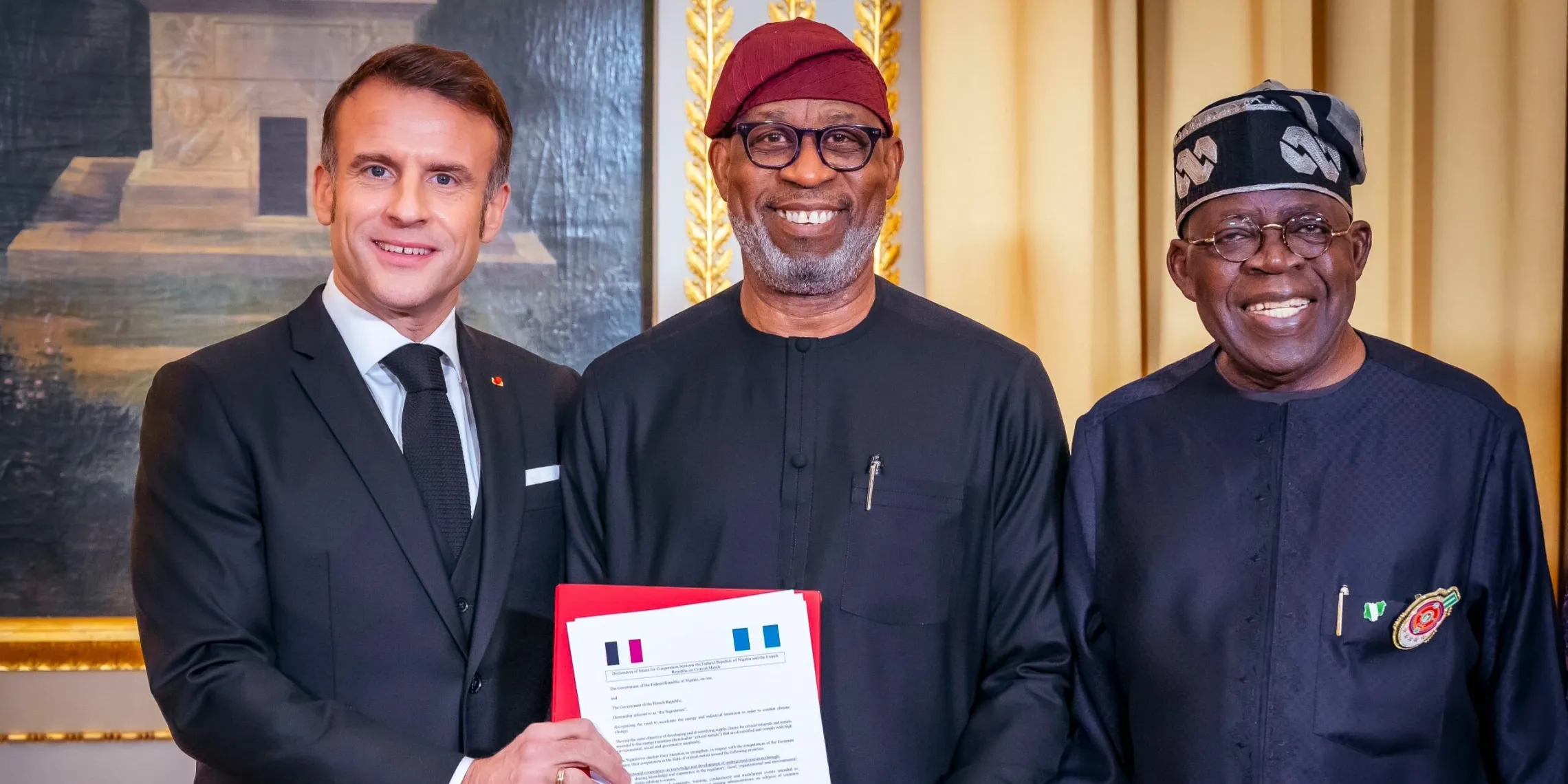The MOU is expected to open new opportunities for the remediation of over 2,000 abandoned pits in the country through its plan to intervene in environmental rehabilitation and post-mining projects.
Nigeria and France have agreed to develop joint projects to promote and diversify the critical minerals value chain in the solid minerals sector of both countries.
Critical minerals such as copper, lithium, nickel, cobalt, and rare earth elements are essential to clean energy technologies.
In the Memorandum of Understanding (MOU) signed by both countries on the sidelines of the official visit to France by President Bola Ahmed Tinubu recently, both countries agreed to collaborate on research, training and Franco-Nigerian students exchanges for knowledge and skills transfer.
A key component of the MOU is the promotion of sustainable mining activities by executing projects and programmes that reduce the environmental impact of mining on carbon emissions, water consumption, and climate change.
It also includes the establishment of joint excrative and processing projects through co-financing by public and private entities to diversify and secure the supply of critical minerals and decarbonise energy projects critical to the value chain.
Mr Dele Alake, minister of solid minerals development, signed for Nigeria while the Inter-Ministerial delegate for Critical Ores and Metals of the Republic of France, Benjamin Gallezot, signed on behalf of France.
Both nations agreed to adopt international best practices in the execution of projects conceptualised to improve the conditions of the local populace affected by mining whilst placing a premium on transparency.
The MOU is expected to open new opportunities for the remediation of over 2,000 abandoned pits in the country through its plan to intervene in environmental rehabilitation and post-mining projects.
Through regular bilateral and multilateral training, seminars, and events, administrators of institutions in the critical metals sector are expected to improve their capacity to manage the sector’s value chain.

